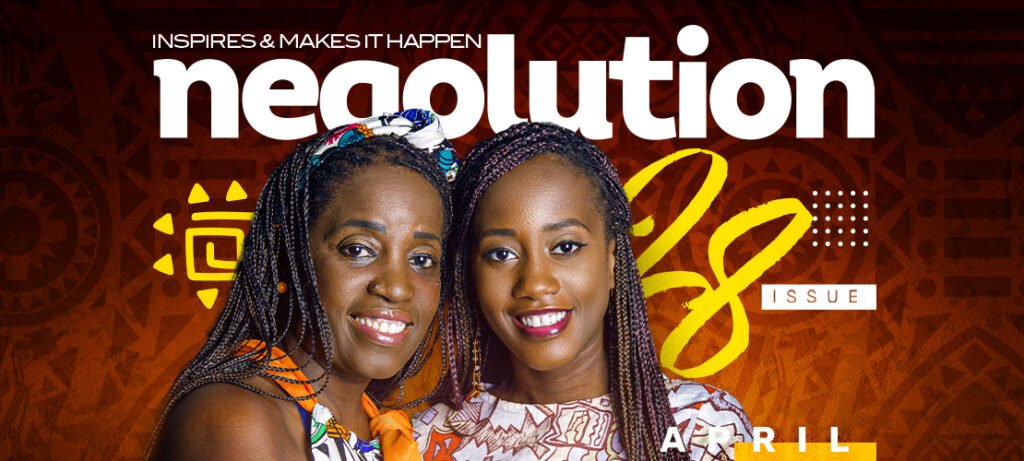
BarbarA’s Power is the first Afro-Cuban clothing brand. Initially, the name was associated with the word “Modas” (Fashions) but, in the opinion of its promoters, that highlighted beauty stereotypes contrary to the essence of the business. On the other hand, “Power” symbolized the empowerment of Afrodescendants.
Its creator, Deyni Terry, and co-founder, her daughter Yurena M. Manfugás, assessed the need for action to defend image rights, undertook market studies and, after appearing in various national and foreign spaces, noticed the absence of companies dedicated to African clothing.
Two years before the founding of the company, in 2014, Bárbara Abreu, the “matriarch of the family,” who designed and made clothes for her children, grandchildren and even neighbors, passed away. Hence, many of the initiatives and concepts associated with the brand bear her imprint, activism and strength “to create and raise children, both difficult tasks in the face of life’s challenges.”
“Her power was in her hands. In addition, she instilled in us pride in our African heritage. She told us about her father brought to Cuba on a slave ship, and how until the day he passed away he maintained the traditions of his homeland. Our business projects who we are and the convictions we stand for.”
The venture’s proposals include garments for events and artists, for foreign students residing in the country; handicrafts for 15th birthday parties and weddings; children’s clothing lines; training for dressmakers, seamstresses, models and home delivery services.
BarbarA’s Power is distinguished by its handcrafted products, innovative and responsible designs, with low impact on the environment. In addition, the use of patchwork, recycled fabrics and natural fibers for the manufacture of accessories.
What solutions do you provide to your customers?
We design garments designed for people who prefer the African style; where our priority is not the speed with which garments are produced and consumed, but the transparency in being sustainable, ethical and in line with the needs and desires of the client. We also offer advice services based on image management, and meet the needs of those seeking identity and comfort.
How do you consolidate and express this link between yourselves and consumers?
We make life easier for the people who seek us out and trust us. When a customer comes to our headquarters, we treat him/her intimately, not only by greeting and providing the required attention, but also by offering a cup of tea, chatting, and creating an almost familiar relationship.
We want them to really feel part of our mission and, above all, to experience it. We want them to feel proud of who they are and to see themselves represented in a society where, due to stereotypes, they were not fully reflected. We even devised a section called “Client with Power,” focused on the user.
How feasible is this type of business in Cuba?
Our own slogan drives us: “We design with purpose.” We believe that our work is feasible and necessary, because we do not limit ourselves to “sewing and singing,” as a popular saying goes. We have an impact on consumers who lack products designed and focused on their customs, cultural expression, image and quality of life.
How much have you grown in the five years since you were founded, and how have you managed to adapt to current conditions?
We measure, above all, our development in terms of positioning, strategies, credibility and loyalty. We created two new brands, GuayAfro and the Afrokids line, which combine Cuban and African cultures. We have a huge social responsibility that is expressed through community actions with the elderly, children, women in socially disadvantaged situations, among others.
Precisely during the COVID-19 pandemic, how did you restructure your work?
Our priority at this stage is movement and social care. We sewed masks for work centers, but mainly to donate to groups of vulnerable people. We created a ‘Help Route’ where we shared what we had, took food to the elderly who live alone, women with children, pregnant women, and supported health personnel.
We also held contests and used fashion to make families with a preference for our product visible. Hence, within the same initiatives, we called a care line called “Family with Power.”
Do you consider yourself a successful business?
In five years we are already seen as a reference for African fashion for the future of Cuba. Likewise, we have managed to create a community that lives and reflects our objective and what we do. We are a business that regardless of not having a store, because we are based in our own house, is characterized by seriousness, fair prices, distinction, exclusivity, we are all-encompassing and that makes us successful.